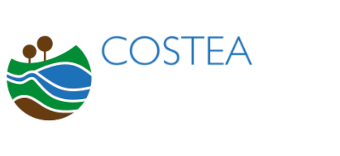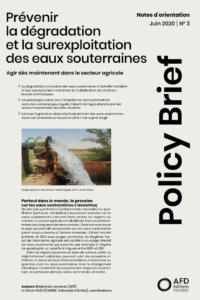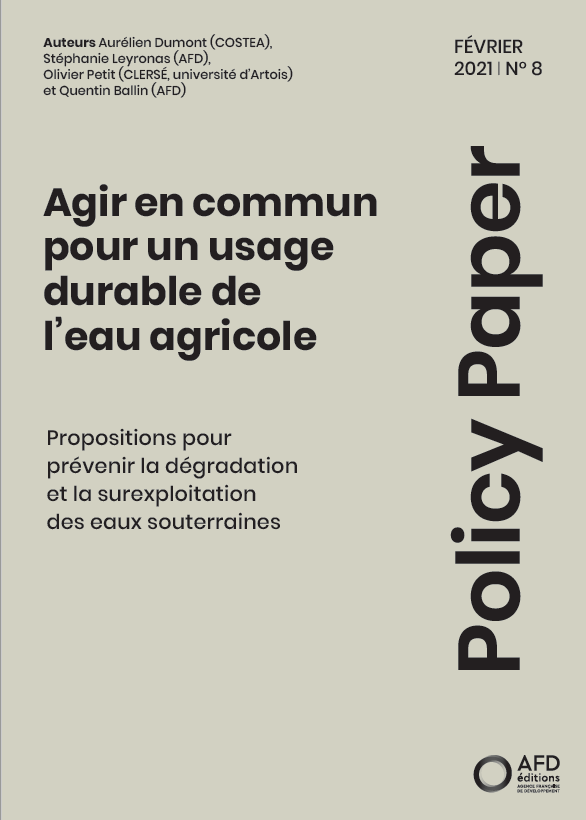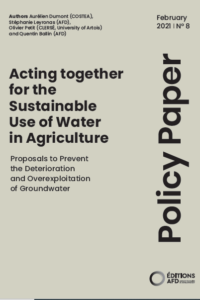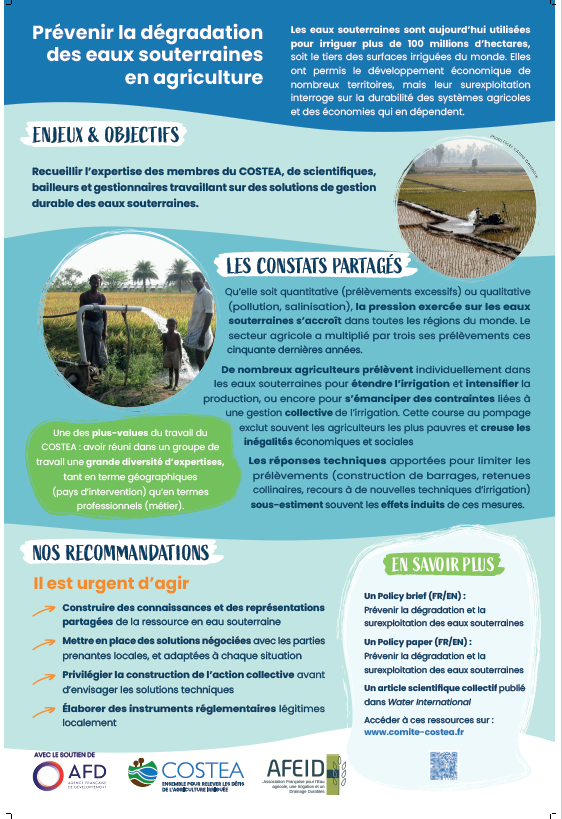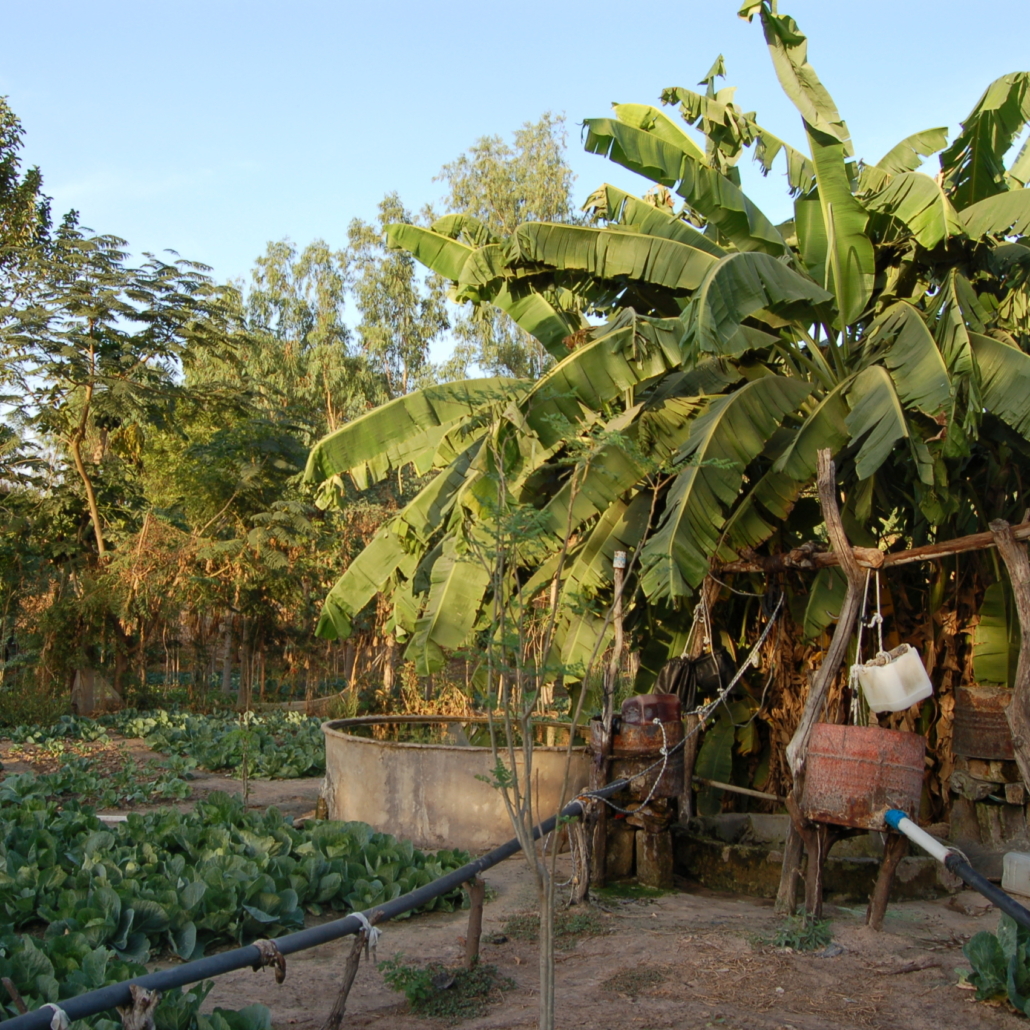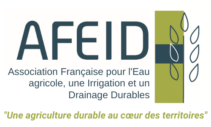Groundwater management
Our main publications
Click on the images to download the Policy Brief, the Policy Paper and the action poster.
Supporting collaborative groundwater governance - Policy design in Limaoua, Tunisia
This video (in Arabic with French subtitles) illustrates how to initiate a local participatory approach to groundwater. In Limaoua, in the governorate of Gabès in Tunisia, the participatory approach was based on a design theory known as the C-K (concept/knowledge) theory. This theory allows the identification of innovative solutions to the problem of groundwater degradation and overexploitation. Interviews and several workshops were held with some 30 stakeholders in the area (farmers, administration, users' associations, researchers, etc.). They initiated dialogue between the users and the administration, and made it possible to reach an agreement on a common concern, to identify groundwater governance principles, to identify solutions to be implemented and to build social capital between the participants.
Supporting collaborative groundwater governance - Governance retroprospective in Aousja, Tunisia
This video (in Arabic with French subtitles) illustrates how to initiate a local participatory approach to groundwater. In Aousja, in the governorate of Bizerte in Tunisia, the participatory approach was based on modelling the past, present and future governance of groundwater with actors in the area. Following the construction of individual models through interviews, two workshops were held to discuss the results using the visioning and future triangle methodology. Some 40 participants were thus able to identify the levers of action to move towards a more sustainable and equitable management of groundwater in the area.
Why groundwater management?
Groundwater is currently used to irrigate more than 100 million hectares, i.e. one third of the world's irrigated areas. It has enabled the economic development of many regions but is often overexploited. This raises questions as to the sustainability of agricultural systems and therefore of the populations that depend on them.
What do we do?
A group of experts (administrative officials from the ministries of COSTEA's partner countries, researchers, experts and doctoral students) was formed to share their knowledge and experience on groundwater management. They produced a Policy Brief and a Policy Paper on this subject, which you can find in the 'Publications' section.
FURTHER READING
The report (in French) of the event is now available.
